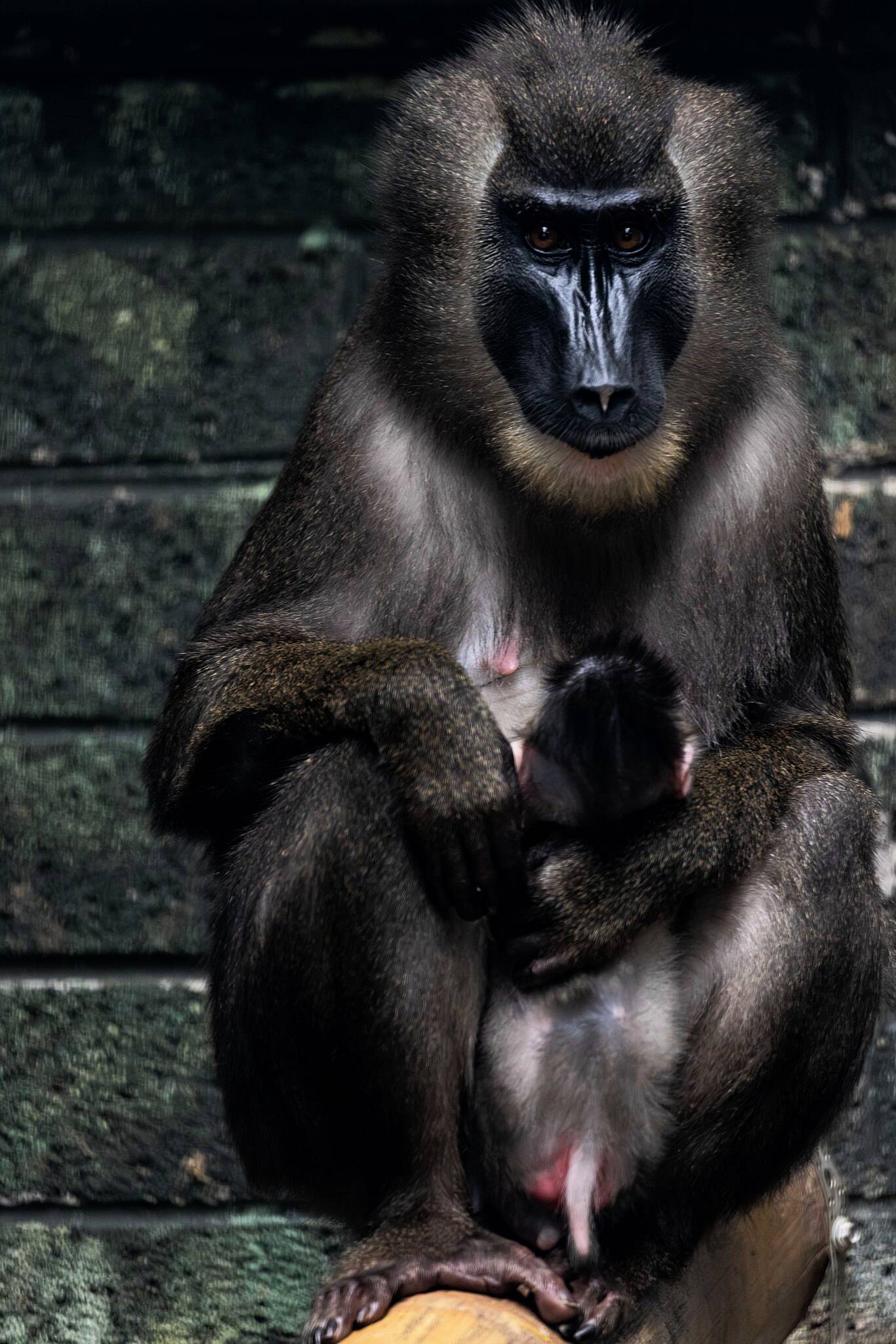Carrigtwohill, Co. Cork – Thursday, 31st July – Fota Wildlife Park is delighted to announce the birth of an endangered male drill monkey (Mandrillus leucophaeus) on the 18th July, the first of its species to be born at the County Cork conservation facility as part of a European Endangered Breeding Programme (EEP). The young drill is the offspring of 9-year-old mother Lewa and 10-year-old father Ekona.
Drills are a rare primate species closely related to mandrills. Over the past 30 years, drill populations have declined by at least 50%. In the wild, they are found only in a limited range: Cross River State in Nigeria, southwestern Cameroon, and Bioko Island in Equatorial Guinea.
Their total natural habitat covers less than 40,000 square kilometres, roughly half the size of Ireland.
There are an estimated 3,000-4,000 drills left in the wild which is decreasing due to habitat loss to give way for development and plantations.
Lead Ranger Teresa Power said: “We’re absolutely thrilled to announce the birth of this baby drill, it’s a first not only for Fota Wildlife Park but for Ireland as well.
The drill is an incredibly rare and endangered species, so it’s a real privilege to be part of the conservation and care of the species. Lewa, the new mother, is doing an excellent job. She’s very protective, and the young male is nursing well, this is her first baby.

For now, Lewa and the baby are being kept separate from the rest of the group, along with Banni, our younger female, who is both curious and attentive toward the new arrival.
We’re hopeful that Banni may give birth herself later this year, and she’s already learning valuable maternal behaviours from observing Lewa. Visitors to Fota Wildlife Park may see the young monkey with his mother, at the purpose-built drill habitat and island. Drill infants are born with a distinctive black cap of hair, which they usually lose around six months of age.
They’re quite precocious too — we often see them trying to wander off as early as two weeks old! Lewa, however, is quick to pull him back and keep him close.
We plan to reunite the group once the baby is a little bigger and more independent.” Drills are large animals, with the males weighing around 33 kgs, they are powerfully built with large canine teeth and feature a range of colours such as lilac, blue, pink and purple on their rumps.
Fota Wildlife Park is asking the public to help name the young male monkey, and to enter their suggestion via the website at www.fotawildlife.ie/blogs/news, for the chance to win a year-long Conservation Annual Pass to the Park. Fota Wildlife Park is home to over 100 animal species, many of which are endangered or at risk of extinction in the wild.
The park actively participates in EEPs for species such as the Asian lion, Indian rhino, Northern cheetah, and red panda, in collaboration with zoological organisations across Europe and the UK under the guidance of the European Association of Zoos and Aquaria (EAZA).
Fota Wildlife Park is open daily from 9.30 am, tickets are available to book on-line at https://www.fotawildlife.ie/






